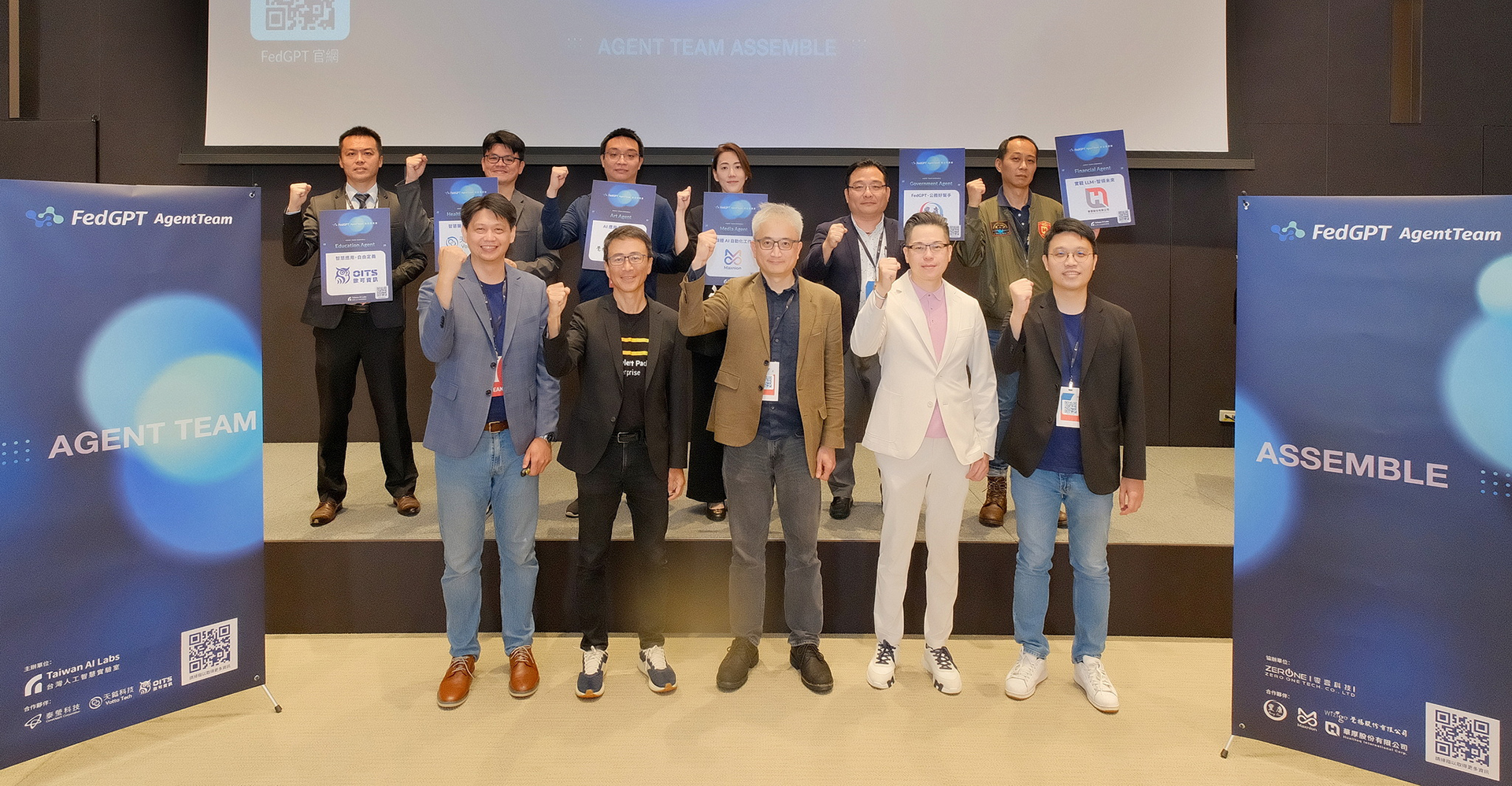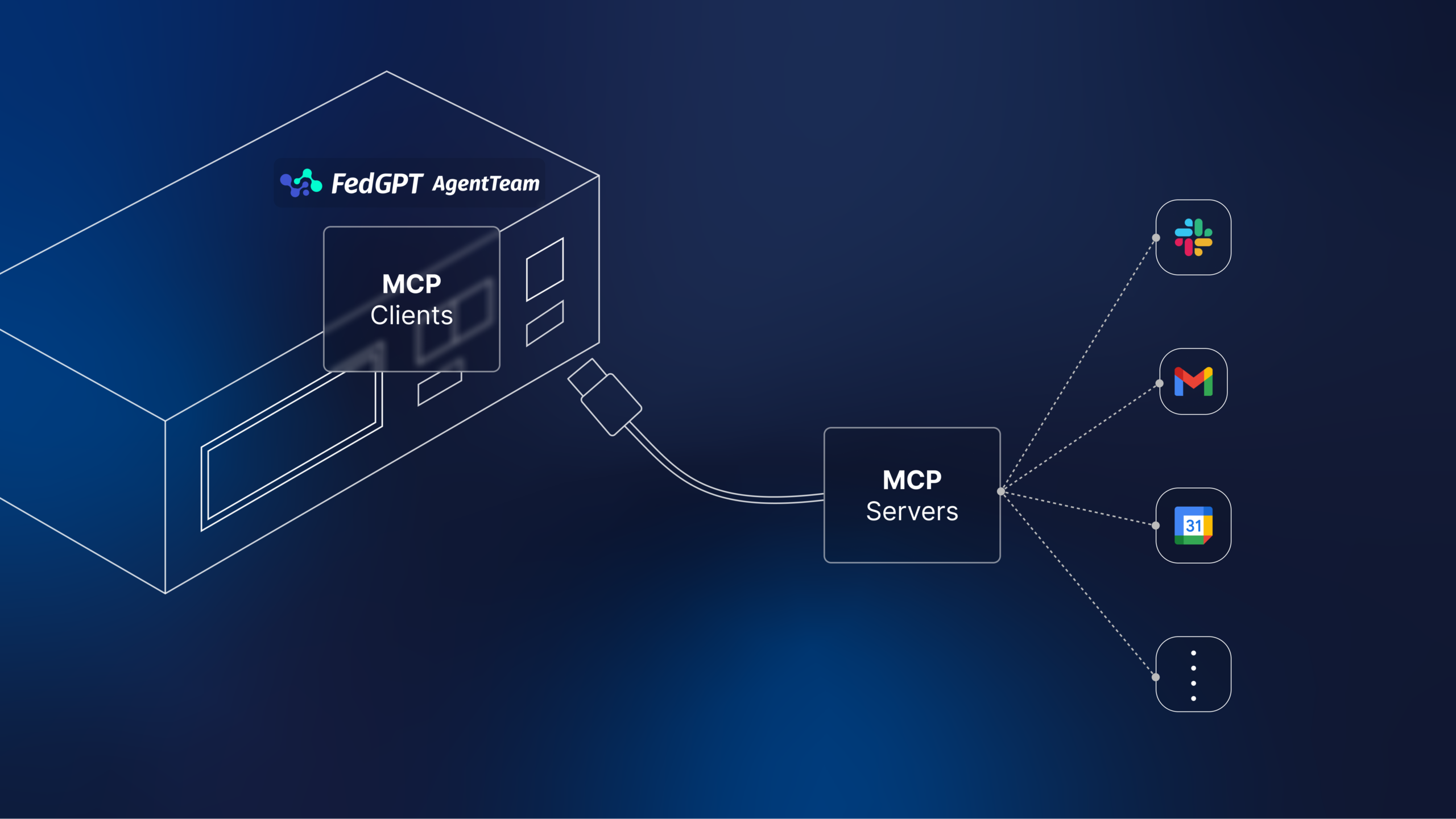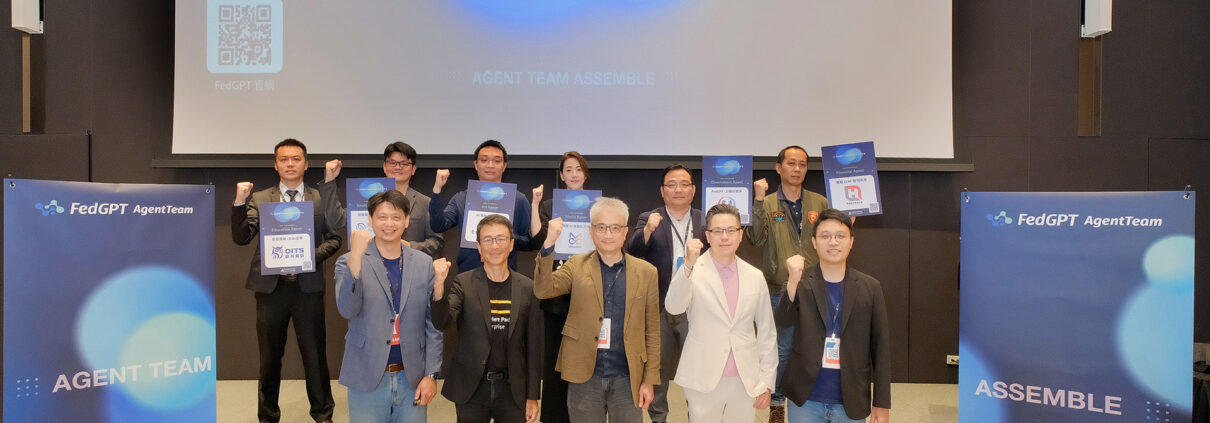AI Experts Embedded in the Enterprise: FedGPT AgentTeam Brings Agentic AI into Real-World Workflows

Photo Caption: From left to right in the front row — JiaHsin Huang, General Manager of Industry Solutions at Taiwan AI Labs; Jon Wang, Managing Director and President for HPE Taiwan; Ethan Tu, Founder of Taiwan AI Labs; Brandon Lin, Director of Strategic Marketing, Imaging, Care Pathways & AI Solutions at GE HealthCare; and Benson Tu, Director of Core Platform Products at Taiwan AI Labs.
While generative AI is now widespread, enterprises still face major challenges: high deployment costs, stringent data privacy concerns, and fragmented internal workflows that hinder the effective use of AI in daily operations. FedGPT AgentTeam addresses these pain points with an on-premise, trustworthy multi-expert small-model architecture. Data stays on local infrastructure, enabling secure, cross-departmental collaboration and multimodal AI workflows that overcome the limitations of traditional tools.
“FedGPT AgentTeam is tailored to the nuances of Traditional Chinese used in Taiwan and designed with a multi-expert, multi-modal, and multi-center framework,” said Ethan Tu, Founder of Taiwan AI Labs. “It allows enterprises to rapidly deploy specialized AI Agents that integrate seamlessly with both internal systems and external tools. From customer service to HR, marketing, manufacturing, and IT, these agents learn internal knowledge and automate complex tasks—turning AI into a true driver of productivity and growth.”
The Rise of Agentic AI: FedGPT AgentTeam Powers End-to-End Workflow Automation
According to The Economist, 2025 marks a turning point for Agentic AI. Gartner predicts that by 2029, 80% of customer service operations will be autonomously handled by AI Agents. As this shift accelerates, FedGPT AgentTeam is emerging as Taiwan’s leading Agentic AI deployment platform, enabling enterprises to scale from single-point AI tools to holistic, organization-wide systems.
The version name “AgentTeam” reflects the platform’s core value: quickly assembling a team of specialized AI Agents tailored to each enterprise’s needs and knowledge base, working together to complete complex business processes.
Three Core Capabilities to Enhance Business Intelligence and Efficiency
FedGPT AgentTeam combines a domain-specific large language model (LLM) with advanced multimodal AI modules including ASR (automatic speech recognition), TTS (text-to-speech), and VLM (vision-language models). This enables it to process voice, images, and text seamlessly. Key features include:
- AgentTeam RAG
Supports diverse formats and sources,including images, videos, charts, audio, and text,for intelligent knowledge retrieval and generation. It intelligently assesses the complexity of each query and selects the most appropriate problem-solving strategy.
Example: When given a company’s stock chart and related news articles,FedGPT AgentTeam can analyze correlations between public statements and stock movements to generate actionable insights. - AgentTeam Flow
A built-in process orchestration tool with a low-code/no-code interface. Employees can trigger multi-agent workflows using natural language—no engineering background required.
Example: In Taiwan AI Labs’ internal project approval process, tasks like requirement analysis, feasibility evaluation, and cost assessment are now fully automated using Flow. - AgentTeam Tuning
Supports enterprise-specific fine-tuning of AI models across multiple modalities, adapting to industry-specific terminology and communication styles.
Example: In healthcare, the platform learned medical staff’s use of informal English abbreviations, enabling accurate transcription and workflow automation across departments.
FedGPT AgentTeam is designed for on-premises deployment, ensuring sensitive data never leaves an organization’s secure environment, which is ideal for highly regulated sectors such as finance, healthcare, and manufacturing.
FedGPT AgentTeam is powered by domain-specific language models shaped by Taiwan AI Labs to align with local linguistic and enterprise needs.Built for adaptability, the model can be rapidly fine-tuned to reflect the specific linguistic, cultural, and operational contexts of each enterprise. In a benchmark assessing localized understanding, the model achieved a Taiwan cognition score of 81.4 out of 100, substantially higher than Chinese models such as Qwen (44.3) and DeepSeek (38.7),demonstrating its strong capability in interpreting and generating content aligned with Taiwan’s unique language environment.
On the “Chinese ideological bias” metric—where lower scores indicate reduced susceptibility to Chinese state-aligned narratives—FedGPT’s score was significantly lower than both Chinese and Western open-source models. This positions the platform as a safer and more contextually appropriate AI solution for deployment in Taiwan’s public sector and sensitive industry environments, minimizing the risk of propagandistic phrasing or narrative misalignment.
To build this domain-specific capability, FedGPT AgentTeam models underwent domain-adaptive pretraining on over 100 billion tokens of Taiwan-specific professional data, requiring just 4,600 NVIDIA H100 GPU hours—an exceptionally efficient process for achieving contextual alignment. The platform is also optimized for enterprise performance: the standard version runs both AgentTeam Flow and AgentTeam RAG on a single Nvidia H200 GPU, dramatically reducing hardware requirements and energy consumption compared to traditional LLMs.
With sustainable infrastructure and predictable total cost of ownership (TCO), the platform offers a cost-effective alternative to token-based pricing models of cloud AI services.
Seamless System Integration with MCP and A2A Protocols
FedGPT AgentTeam supports two open standards that power agent collaboration and integration:
MCP (Model Context Protocol): A secure interface that facilitates intermediary-based access to external applications such as Gmail, Slack, and Google Drive. It converts diverse data formats into AI-readable inputs—think of it as a USB adapter for AI, enabling plug-and-play interoperability.

Photo Caption:MCP can be thought of as a USB adapter for AI, enabling plug-and-play interoperability.
A2A (Agent-to-Agent): A communication protocol for AI Agents to share information, sync progress, and coordinate decision-making. It mirrors how human experts consult each other.Agents can request input from more specialized peers, enabling collaborative problem-solving for complex tasks.
For quality control, the system includes a Human-in-the-Loop mechanism, allowing users to set review checkpoints. It also integrates ReAct (Reasoning and Acting) logic, enabling agents to self-evaluate their outputs at each step, reducing the risk of error accumulation in multi-stage workflows.
Broad Adoption Across Key Industries
FedGPT AgentTeam is already being used in healthcare, finance, education, and government. Early adopters include Hualien Tzu Chi Hospital, Fu Jen Catholic University Hospital, Dong Hwa University, and Taishin Bank.
Looking ahead, the platform is poised to transform high-volume, repetitive business functions in HR, admin, customer service, legal, marketing, and IT. Applications range from policy search and document review to leave approvals, marketing content generation, legal Q&A, and code generation.
Unlike traditional ERP systems or RPA tools, FedGPT AgentTeam enables real-time, natural-language-triggered workflows that adapt to multimodal data. With its intuitive, language-based interface, the platform has the potential to redefine enterprise architecture, eventually replacing parts of legacy ERP systems and bringing AI into the core of daily operations.



